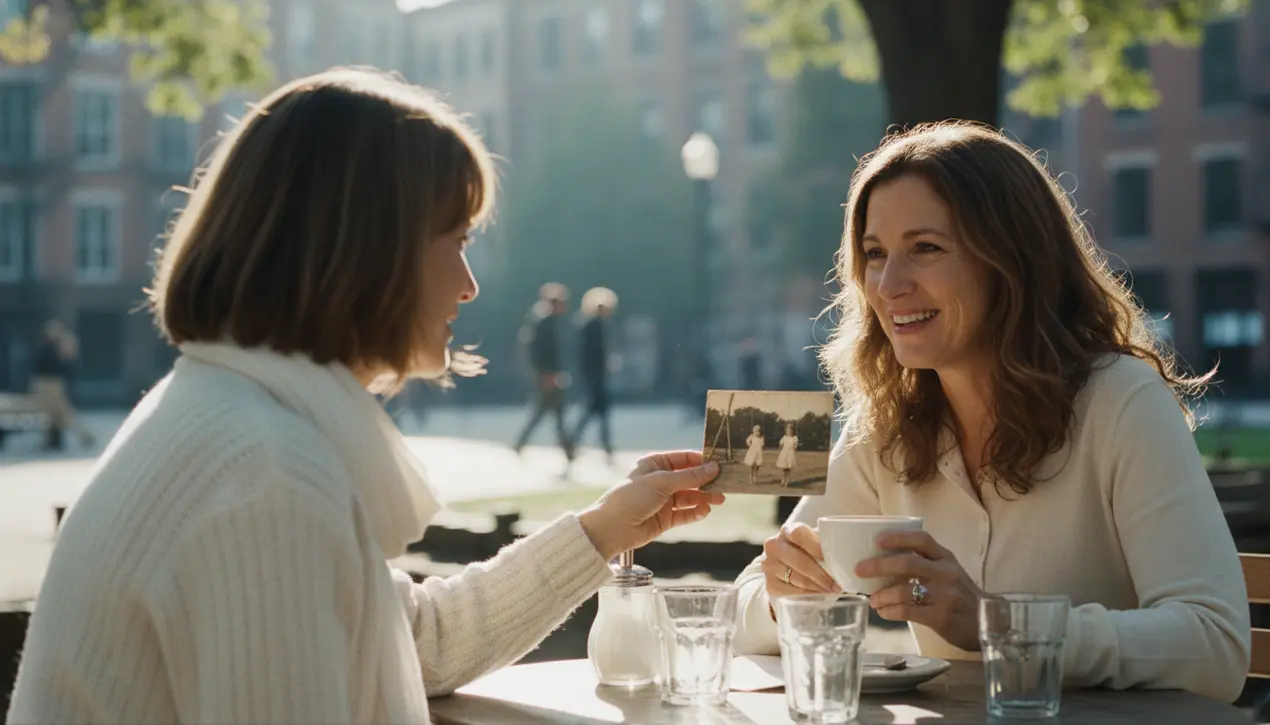
OthereducationStudent Life
Loneliness is rising. How to reconnect with old friends.
LA
Laura Bennett
2 hours ago7 min read
When Jennifer Austin met Molly in second grade, they quickly became best friends, their bond forged in the secret language they invented after their teacher separated them for giggling too much in class. They shared sleepovers, family vacations, and the unspoken understanding that comes from knowing someone sees the world exactly as you do.Then life intervened—Austin’s family moved to Germany before high school, and decades slipped by in a quiet drift of postcards and fading memories. It’s a story so many of us know intimately, that slow-motion loss of early friendships not to conflict but to geography, to time, to the sheer logistical weight of adulthood.Austin, now 51, describes those friendships as 'little lights in the back,' never fully extinguished, just waiting for a breath of oxygen to flare back to life. She and Molly recently reconnected as grown women, picking up threads of a conversation paused twenty years earlier.Psychologist Marisa Franco, author of 'Platonic,' frames this modern loneliness as something amplified by technology—first television, then smartphones—creating a paradox where we’re more connected than ever yet feel profoundly isolated. Her research offers a counterintuitive comfort: we consistently underestimate how much old friends want to hear from us.Most people are delighted, even relieved, by an unexpected message. Franco suggests anchoring the outreach in a shared memory—a photo, an inside joke—to bridge the years instantly.Heather Robb and Laine DiPasquantonio lived this truth. Nearly inseparable in their Boston twenties, they watched their friendship fade into the busy blur of toddlers, careers, and cross-country moves.Robb saw DiPasquantonio’s life unfold on social media, assuming she’d been replaced; DiPasquantonio saw Robb’s ski trips with others and wondered if there was still room for her. It took a business trip to Denver and a nervous phone call to shatter those assumptions.Robb learned her old friend was facing breast cancer surgery, and instead of a quick dinner, she spent a weekend at her side. 'It just feels so good,' Robb reflects.'It feels like there was a missing piece. ' For 18-year-old Reyna Dominguez, reconnecting with her first-grade best friend after a six-month silence felt like reclaiming a part of herself.'She knows all about my life,' Dominguez says, articulating the unique comfort of a friend who holds your history. Her advice is simple, almost a mantra for the hesitant: 'Just do it.You have nothing to lose. ' Andrew Snyder, a 50-year-old teacher, has maintained a friendship with his fifth-grade best friend through plane rides and life changes by treating the relationship as a living thing that requires active care—monthly calls, intentional visits.He worries that the very fabric of friendship is thinning, replaced by the 'overwhelm and depletion' of screen-saturated lives. Not every reconnection leads to a happy ending, of course.Kim Ventresca, 22, reached out to a college friend only to have the friendship end more definitively later. Yet she has no regrets.'The worst thing that happens is you get left on read,' she says, a modern phrasing for an ancient fear. What emerges from these stories is a collective portrait of courage—the small, brave act of typing a message, making a call, proposing a coffee. It’s an acknowledgment that while friendships may pause, they don’t have to end, and that the risk of awkwardness is almost always outweighed by the profound human need to be known, remembered, and welcomed back.
#friendships
#loneliness
#reconnection
#mental health
#social wellness
#featured
Stay Informed. Act Smarter.
Get weekly highlights, major headlines, and expert insights — then put your knowledge to work in our live prediction markets.
Related News
Comments
Loading comments...
© 2025 Outpoll Service LTD. All rights reserved.